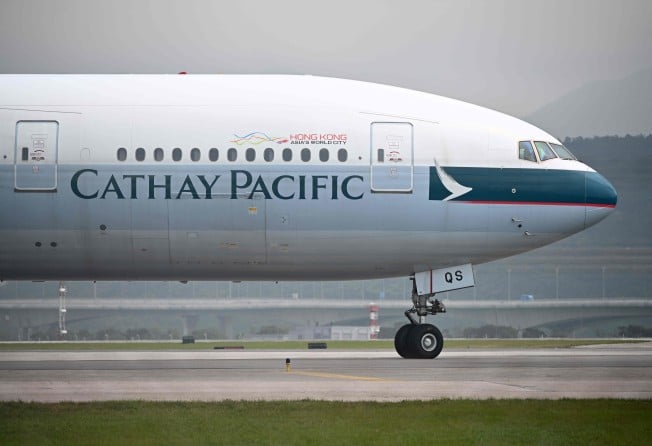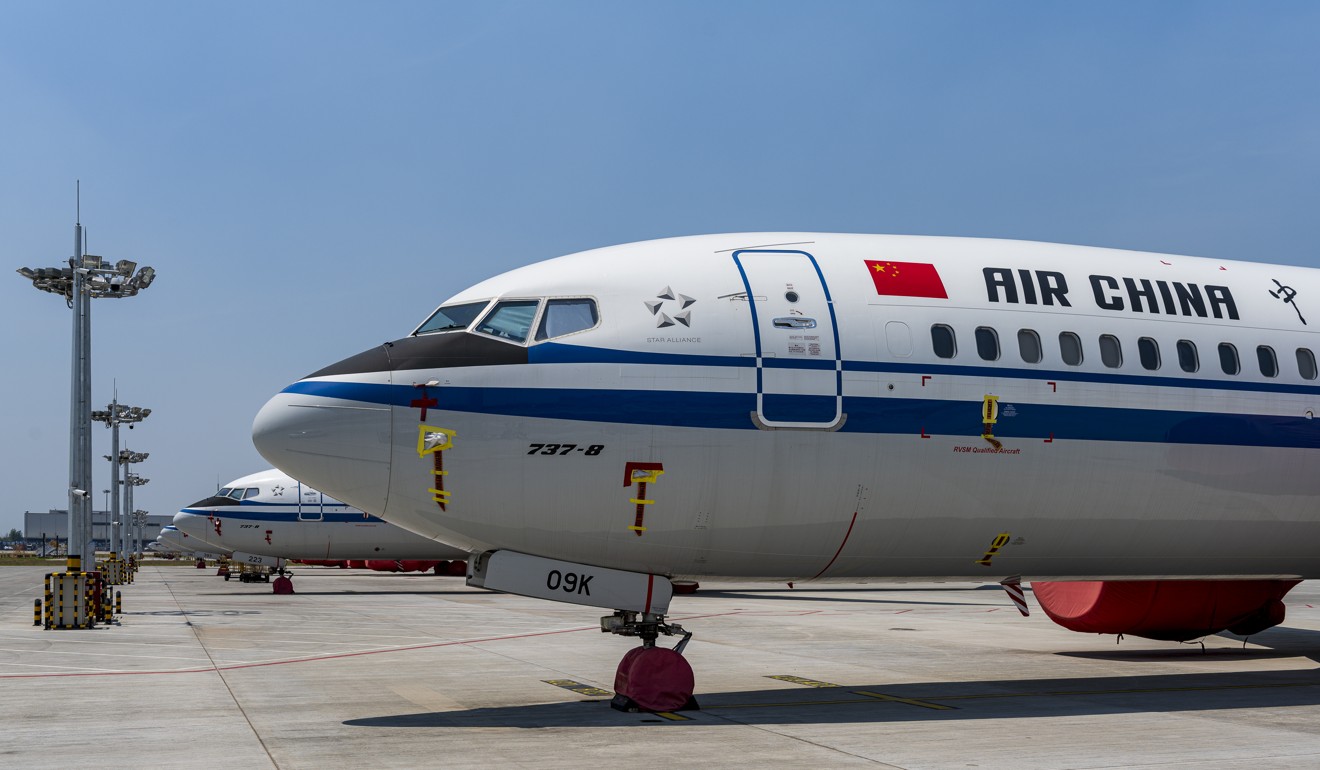Cathay Pacific takeover ‘not on the agenda’ says Air China director Stanley Hui
- The state-owned carrier already owns 29.99 per cent of Cathay, the legal maximum at a Hong Kong-listed company
- Aviation veteran Stanley Hui says a full takeover would send the wrong signal to investors abroad

Air China is not interested in taking over the Cathay Pacific Group and has no desire to get involved with the day-to-day running of Hong Kong’s flagship airline, according to a member of the state-owned carrier’s board.
“Based on what I know, I wouldn’t think that is anywhere on the agenda, no way,” aviation veteran Stanley Hui Hon-chung told the Post, when asked if Air China might seek to buy the Hong Kong carrier outright.
Hui, an independent non-executive director at the mainland carrier, said any Beijing-led moves that changed Cathay Pacific’s ownership would send the wrong signal to foreign investors.
He said Beijing’s desire, since before the British handed Hong Kong back to China in 1997, had been to preserve Hong Kong, and that meant “not frightening off foreign investment”.
“There could be a bit more [of] Chinese companies participating in different ways, but it doesn’t mean coming in to replace anyone,” he said. “That, I still very much believe.”
Air China owns 29.99 per cent of Cathay Pacific, the maximum a single party can own of a publicly listed company in Hong Kong. Once a shareholder crosses the 30 per cent mark, an offer must be made for the rest of the shares, under the city’s takeover regulations.
Questions about Beijing’s intentions surfaced after its aviation regulator reacted angrily last month to Cathay’s handling of issues related to the ongoing anti-government protests in the city.
The Civil Aviation Administration of China slapped Cathay Pacific with a safety warning as punishment for allowing its staff to support the protests. The response was swift, with almost a dozen Cathay staff sacked and the airline’s top leadership replaced.
I think it’s very much for Swire to decide the best arrangements at Cathay
Air China has remained silent since the regulator cornered Cathay, leading to speculation of an opportunistic takeover, with Cathay’s shares having sunk amid the crisis. The state-owned carrier could not be reached for comment.
Hui, 68, knows Cathay Pacific well, having started his career as a management trainee there in 1975. He rose to become chief executive at Dragonair, later rebranded Cathay Dragon, and chief executive of the Hong Kong Airport Authority. He is president of the Hong Kong Aircraft Leasing and Aviation Finance Association.
Cathay Pacific’s largest shareholder is Swire Pacific, which Hui said had managed the airline well, except for the fuel hedging saga, which resulted in losses of HK$25.6 billion (US$3.3 billion) between 2014 and 2018 from long-term bets on the price of oil.
He described the thinking at Air China this way: “OK, Air China is an investor, but we have every confidence in the management of the Swire Group, and the airline, and that has been proven with the success of the airline over the years.
“Why do you want to disrupt it, if it’s doing a good job? I think it’s very much for Swire to decide the best arrangements at Cathay.”
Air China hit the threshold stake of 29.9 per cent in 2009, fuelling questions since then over when it would initiate a full takeover of the Hong Kong airline.
The Beijing-owned carrier has four representatives on Cathay’s board, and its chairman, Cai Jianjiang, is Cathay’s deputy chairman. Cathay Pacific owns 18.13 per cent of Air China and has one board seat, currently held by outgoing chairman John Slosar.

The two airlines work together on flights, including the Hong Kong-Beijing route, and also on their cargo joint venture, among other commercial deals. Late last month, they agreed to extend their working relationship until at least December 2022.
Bocom International transport analyst Luya You dismissed the idea of a possible takeover by Air China, saying the airlines’ current cooperation arrangement was satisfactory for both.
“Considering Air China’s proposed cooperation with Cathay Pacific was always set to be a more long-term relationship, I don’t think recent shifts in [Cathay’s] management would really derail things,” she said.
Alan Tan, an aviation law professor at the National University of Singapore, said the key to making the relationship work was for Air China to leave Cathay Pacific in the hands of Hong Kong-based management and keep it incorporated in Hong Kong.
“Legally, there is nothing to stop Air China from upping its stake, even to the point of buying Swire out. As long as they maintain the nerve centre in Hong Kong, they would be within the Basic Law,” the professor said, referring to the city’s mini-constitution.
James Tong Wai-pong, public affairs director at Cathay’s main owner Swire Pacific, said: “As a long-term shareholder in Cathay Pacific for over 70 years, Swire is firmly committed to the airline. We have full confidence in its long-term prospects.”